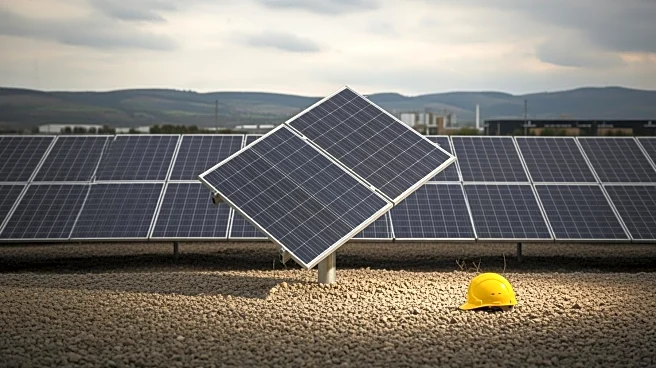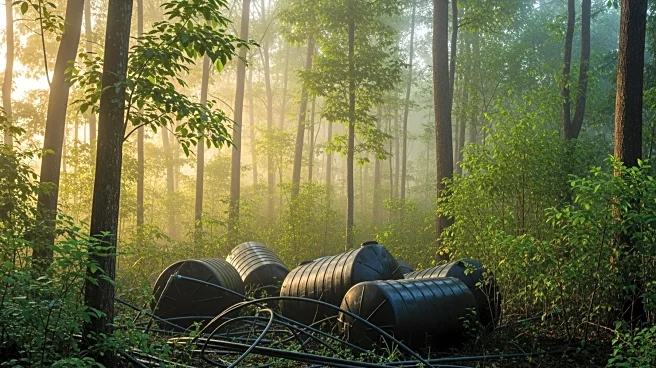What's Happening?
A Chinese-backed solar power project in Bosnia-Herzegovina has encountered significant legal challenges following the death of a construction worker at the site. The incident led to an inspection that revealed 71 illegal Chinese workers, resulting in their
deportation and the halting of the $116 million project. Investigations have been launched into potential misuse of public land. This marks a rare setback for Chinese investments in the Balkans, where such projects are typically protected by political alliances. Local residents have raised concerns about environmental risks and safety issues, prompting legal actions to stop the project.
Why It's Important?
The legal challenges faced by the Chinese solar project in Bosnia highlight the growing resistance to foreign investments that may compromise local laws and environmental standards. This incident underscores the tension between economic development and environmental protection in the Balkans. It also reflects broader concerns about the influence of Chinese investments in the region, which are often facilitated by local political elites. The outcome of this case could set a precedent for future foreign investments, emphasizing the need for compliance with local regulations and community interests.
What's Next?
Local activists and residents are preparing additional legal actions against similar projects, aiming to ensure lawful management of public land and environmental protection. The case may prompt increased scrutiny of foreign investments in the Balkans, potentially influencing policy changes to safeguard local interests. Chinese companies involved in the project have maintained that all necessary permits were obtained, but the legal proceedings could lead to further delays or modifications to the project.
Beyond the Headlines
The situation in Bosnia reflects a broader pattern of Chinese investments facing resistance due to environmental and labor concerns. As China seeks to rebrand itself as a green investor, incidents like this challenge its global image and highlight the complexities of balancing economic growth with sustainable practices. The Balkans serve as a testing ground for Chinese companies to adapt to stricter European Union standards, but local pushback may force them to reconsider their strategies.















